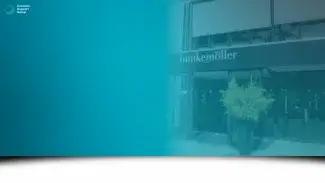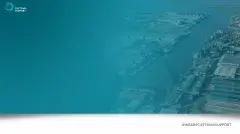Hunkemöller's Global Freight and Customs Manager Richard Lans, and Customs Support Group's Senior Consultant Jens Stevens, talk about their successful collaboration here.
Jens: "In my previous jobs, I gained the knowledge to optimise processes. Hunkemöller asked me to use my experience with them, especially in the areas of transport, import and export.”
For over a year now, Richard Lans has been the global freight and customs manager at Hunkemöller, following an extensive career with other brands. Jens was already active when Richard joined the global lingerie brand, having been asked to perform a compliance scan – which was still called a “quick scan” at the time.
“Indeed, it was one of my first assignments at Customs Support.”, Jens recalls.
"On my first day, Jens came to me saying that a number of findings had come out of that scan," Richard can laughably reminisce now that the challenges have been braved. “It was a memorable entry.”
During a compliance scan, Customs Support Group’s specialists assess your existing processes. Then, using data analysis, they prepare a report which outlines the opportunities, areas for improvement, and the possible risks your customs chain is exposed to.
Putting permits under the microscope
Jens explains his findings: "Hunkemöller had a number of customs licences, which they wanted to keep: AEO, bonded warehouse licence and IIAA (Registration in the Declarant's Administration). We listed those licences and the relevant conditions to see if the company still complied with them. A number of recommendations followed from that, which included the transition from customs to DMS4.1 directly. In doing so, we scrutinised the entire administration, processes and interfaces."
From the plan of action came a surprising twist, especially since Hunkemöller had made the switch to a new distribution centre (DC) just recently. The company built a new DC in Almere, as the existing one in Hilversum was no longer adequate.
"Partly on this basis, Hunkemöller made its choices," Jens states. "For example, saying that for the time being there was not enough capacity and financial benefit to keep the warehouse function." "Because of the new building, there would temporarily not be enough capacity to implement all the changes and the financial benefit of having a warehouse licence was less profitable than expected."
Cost savings by withdrawing permits
By taking an honest look at the various permits, Hunkemöller ended up saving money. “We revoked licences because the customs duties were too minimal compared to the costs", Jens revealed.
"Like all retailers, Hunkemöller is also facing tough times," states Richard. "Several retail organisations are struggling, so cost cutting is important. By looking very carefully at efficiency, Customs Support Group has helped us well with this. As a result, we can make the transition to the new DC with peace of mind and also properly justify our steps in the customs process."
Savings by outsourcing processes
Customs Support Group was given and took the leading role in this, as the specialists. Jens talks about the necessity of the project:
"It is always good to evaluate your procedures. That is what happened here. The move to a new DC and the transition from AGS to DMS prompted this. What are we doing and what can we do better? Or is it better to not do any more? Partly helped by the move, we were able to look deeper into the processes."
“One of the outcomes from those analyses is that we saw Hunkemöller could save costs by outsourcing things. And because we outsource certain processes, we also don’t need to have so many permits. That, in turn, saves across the board – mainly in additional staff and application costs. And internal processes that were set up for the relevant permits can now be partly simplified, because several measures no longer apply," Richard notes. "Later, once we make the switch and the new DC is running at full capacity, we will evaluate everything again."
"Many companies have blind spots, so it is good then to have a fresh look at the processes," adds Jens Stevens. "Not just to determine the risks, but precisely to realise improvements. So that you are ultimately more efficient and can save costs."
Jens continues: "Often, people have been in a position for a long time, in which case we often don't realise all the things that can now be changed and automated in the customs world. After all, they have been working in the same place and in a certain way for a long time. As an external consultant, that's exactly when we can come up with new ideas."
Richard agreed with his words, looking at the situation at Hunkemöller: "The company has grown enormously in recent years, with people continuing to work in the ways they always have."
"Today, things can be done more efficiently in a different way. Therefore, if you want to work future-oriented, you have to keep doing these kinds of scans; to keep your organisation on its toes. That way, you can discover the blind spots – which exist in every organisation – and resolve those."
Changes were implemented in a short time
"We went back to basics. What does Hunkemöller do well and what less well?", Richard remembers.
Jens: "We made changes in a positive sense."
"And that in a very short time, within six months,” Richard continued. “The great thing is that we got the whole organisation on board to actually make this happen. In that respect, it is an advantage that an external party drew the conclusions, then it is easier to realise changes. In any case, a party like Customs Support Group naturally brings along knowledge. Of current developments, but also of other parties. And they know the challenges for us as a retail company. What I find most important: we did it as partners, with the aim of making Hunkemöller even better."
Interested in our Compliance Scan?Click here for more information or contact one of our specialists right away.















